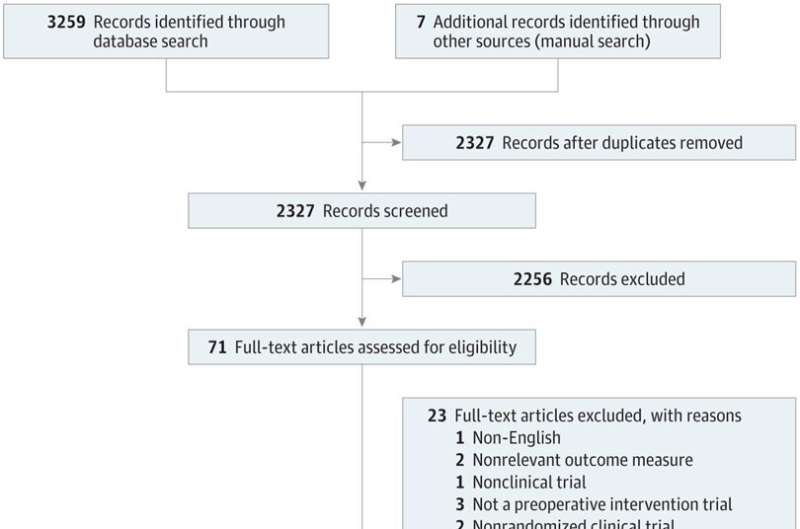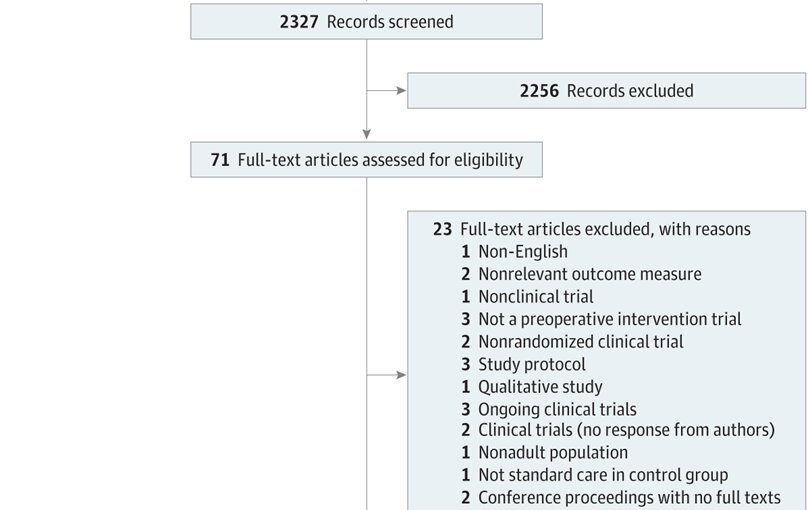
Pre-surgery exercise and education—widely known as prehabilitation—can significantly improve outcomes for patients undergoing orthopaedic surgery, according to new research published in JAMA Network Open,
Musculoskeletal disease is the biggest contributor to global disability, and millions of orthopaedic surgical procedures are carried out worldwide every year. An aging population puts an unprecedented demand on health services globally. The COVID-19 pandemic has further disrupted surgical pathways, creating a longer waiting time for patients due to undergo routine elective surgical procedures. This can cause mental and physical deconditioning in patients, potentially impacting their surgical outcomes.
The study found prehabilitation may mitigate these negative factors and assist in improving strength and function prior to a surgical intervention. This may include exercise, patient education, pain management and psychological support.
Researchers from Anglia Ruskin University (ARU), Addenbrooke’s—Cambridge University Hospitals NHS Foundation Trust (CUH) and Western University in Ontario, Canada, examined the results of 48 unique clinical trials involving prehabilitation techniques such as exercise, pain management and acupuncture among patients about to undergo orthopaedic surgery.
Outcomes were measured prior to surgery as well as at intervals post-operation. Results were graded for certainty, or confidence that results were true.
Prior to surgery, the study found strong evidence that prehabilitation led to a reduction in back pain for people waiting for lower back surgery and evidence of moderate certainty for improvement in their health-related quality of life.
For patients waiting for total knee replacement, evidence of moderate certainty showed prehabilitation improved function and muscle strength. For patients waiting for a total hip replacement, evidence of moderate certainty showed prehabilitation improved health-related quality of life and hip muscle strength.
Following an operation, the study found that prehabilitation improved function in the short to medium term compared with no prehabilitation. In particular, evidence of moderate certainty suggested prehabilitation had favorable outcomes on function in those who had undergone knee replacement surgery at six weeks post-operatively. Evidence of moderate certainty also suggests prehabilitation improved function six months after lower back surgery.
Lead author Anuj Punnoose, ARU Ph.D. candidate and clinical specialist physiotherapist at CUH, said, “This study stemmed out of a need to find the best ways to prepare orthopaedic patients prior to surgery and prevent them from further deconditioning. Furthermore, any prehabilitation program should ideally be delivered for at least four to six weeks prior to the surgical intervention and twice a week for optimum results. Health services looking at developing such programs could utilize recommendations from this study.”
Dr. Leica Claydon-Mueller, associate professor of health services research at ARU, added, “While the results of the study are encouraging and support prehabilitation, it is also important that patients engage in post-operative exercise programs appropriately to achieve optimal outcomes.”
Senior author, Vikas Khanduja, consultant orthopaedic surgeon at Addenbrooke’s—CUH, and ATOMS Lead at ARU, said, “Outcomes following orthopaedic surgical interventions may be variable and this study contributes to understanding the role that muscle strength may play in the variability of surgical outcomes.
“The focus of our research group is optimization of outcomes following surgical intervention in young adults with hip pathology. Two trials to address this question are currently underway at CUH looking at prehabilitation and role of muscle strength in patients undergoing keyhole surgery of the hip.”
“The focus of our research group is optimization of outcomes following surgical intervention in young adults with hip pathology. Two trials to address this question are currently underway at CUH looking at prehabilitation for patients undergoing different types of hip surgery.”
More information:
Anuj Punnoose et al, Prehabilitation for Patients Undergoing Orthopedic Surgery, JAMA Network Open (2023). DOI: 10.1001/jamanetworkopen.2023.8050
Journal information:
JAMA Network Open
Source: Read Full Article
